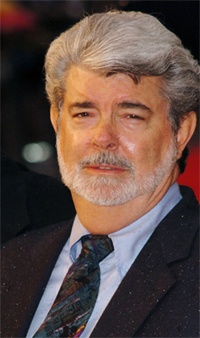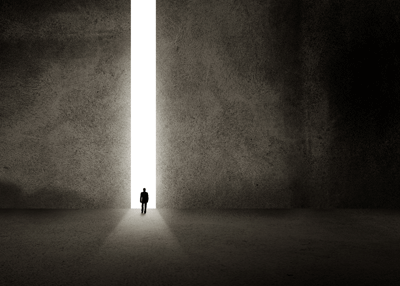A guest post by Dr. Dennis Patrick Slattery.
Now that the heat of the long-awaited release of the next installment of the Star Wars epic, franchise, industry, and monster money-maker has passed and the fires of enthusiasm have cooled a bit to a delightful glow, one might ask: what is it about this series of science fiction films, the brain-child of George Lucas, which has now been passed on to the brilliant director, JJ Abrams, whose task it was to retrieve some of the excitement of The Return of the Jedi (1983) by offering a plausible sequel to it, but revitalized and, well, made to reflect more inclusively the world we inhabit today?
 But there are and have been many stories told in film over the decades, some more engaging than others, so what is it about this story and this series that grabs hold and clinches tight to people around the planet? Some audience members went so far as to camp out for a full week to be the first into the theaters to witness this new iteration of ancient stories. And that is indeed the clincher: the nature of the story itself. Something about the pattern of the plot engages us deeply without perhaps our knowing fully why has that power. It is not unusual for movie-goers to be excited and moved by a film, but find that it difficult to give it language or adequate expression. Star Wars works, in large measure, because George Lucas, who admitted this publicly years ago, discovered a book written by the mythologist Joseph Campbell (1904-1987) and published in 1949: The Hero With a Thousand Faces. From that time on, myth became a permissible and often provocative topic to discuss publicly. At a banquet in New York City in 1985 in honor of Joseph Campbell’s dozens of books and lectures on mythology, Lucas, sitting at the same table of luminaries as Campbell, said that he would still be playing around with crafting the first Star Wars film had he not come on Campbell’s work which, among other things, outlined more than a dozen stages or thresholds of the Hero’s Journey, a series of events and encounters that are as old as human beings themselves and which, by-and-large, we all participate in through our own narrative lives. Here, I suspect, is the source of our attraction to this mythic narrative.
But there are and have been many stories told in film over the decades, some more engaging than others, so what is it about this story and this series that grabs hold and clinches tight to people around the planet? Some audience members went so far as to camp out for a full week to be the first into the theaters to witness this new iteration of ancient stories. And that is indeed the clincher: the nature of the story itself. Something about the pattern of the plot engages us deeply without perhaps our knowing fully why has that power. It is not unusual for movie-goers to be excited and moved by a film, but find that it difficult to give it language or adequate expression. Star Wars works, in large measure, because George Lucas, who admitted this publicly years ago, discovered a book written by the mythologist Joseph Campbell (1904-1987) and published in 1949: The Hero With a Thousand Faces. From that time on, myth became a permissible and often provocative topic to discuss publicly. At a banquet in New York City in 1985 in honor of Joseph Campbell’s dozens of books and lectures on mythology, Lucas, sitting at the same table of luminaries as Campbell, said that he would still be playing around with crafting the first Star Wars film had he not come on Campbell’s work which, among other things, outlined more than a dozen stages or thresholds of the Hero’s Journey, a series of events and encounters that are as old as human beings themselves and which, by-and-large, we all participate in through our own narrative lives. Here, I suspect, is the source of our attraction to this mythic narrative.
 For example, some of these timeless Thresholds that the Star Wars films, past and present, engage, include: “A Call to Adventure”—to which earlier Luke Skywalker responded with a clear YES, and now in the most recent version the young scavenger hunter, Rey responds to, as does the disaffected Stormtrooper, Finn, with a resounding YOU BET, because they both know something is “not right” with the destructive plots being hatched under the Force of Darkness. “Threshold Crossing” is another situation that the epic story of heroes contains, which is often followed closely by entering “The Belly of Whale,” illustrated so vividly in the compactor scene in Return of the Jedi and in The Force Awakens with spaces that constrict, trap and incarcerate the hero.
For example, some of these timeless Thresholds that the Star Wars films, past and present, engage, include: “A Call to Adventure”—to which earlier Luke Skywalker responded with a clear YES, and now in the most recent version the young scavenger hunter, Rey responds to, as does the disaffected Stormtrooper, Finn, with a resounding YOU BET, because they both know something is “not right” with the destructive plots being hatched under the Force of Darkness. “Threshold Crossing” is another situation that the epic story of heroes contains, which is often followed closely by entering “The Belly of Whale,” illustrated so vividly in the compactor scene in Return of the Jedi and in The Force Awakens with spaces that constrict, trap and incarcerate the hero.
We also witness and sense in a personal way “A Meeting With a Divine Source,” here in the form of the Force, a vital Life Principle that can be twisted for selfish ends, as embodied in the young Darth Vader makeover, Kylo Ren, son of Han Solo and Princess Leia; the Force can also be used to improve the communal condition of harmony, prosperity and concord of an entire galaxy. The heroic achieves such a condition often by being “Guided By a Wise Man or Woman,” a shaman of sorts, of engaging several “Forms Of Initiation” once the heroic figures depart from the ordinary run of life and the safety of the familiar and enter the belly of the dark wood. Often some form of magic conveyances or transport vehicles allow the hero to disengage from the limits of the Ordinary, to soar, to move at the speed of light, in order to confront, conquer or escape from forces of destruction, which are most often motivated solely by grabs for power, fame or wealth. The hero often enters a “Threshold Habitation,” like the bar in Jedi where creatures from across the galaxy drink strange colored brews as they rest and socialize before gliding out into space. A similar scene prepares the young Rey and Finn for their new expedition to war against the “Forces of Destruction.” Without this opposition we would not have a story.
In the epic narrative we accompany the hero when s/he engages some form of “Atonement” with a family member, a lost friend or hero, as the hero(ine) discovers some Treasure or Boon that is recovered, like Luke’s former lite saber and where Rey, the former junk scavenger, the task of finding Luke alone in a primitive monastic setting far, far away to offer him his old weapon, which, we may see in the next installment, scoops him back into the heroic life he abandoned. Han Solo, another hero, attempts “Atonement” with his dark-souled son and is executed in the attempt.
Most often then, in the round of the story there is “The Return” or a “Crossing Back Over the Threshold” from a world of distress into the familiar and known, a journey which requires great wit, skill, strength and helpers to survive it. Most important, though, the hero has been transformed, renewed, perhaps for the first time full of self-knowledge in both one’s tremendous gifts, as Rey learns and which frightens Ren, as well as one’s vulnerabilities. What the heroic figure returns with, in addition to other treasures, is the story itself, which, as a “Boon” or gift, is the supreme reward for carrying out, in a selfless manner, what is good for the commonwealth and moves it along to a greater awareness and exercise of its virtues and values. The story, finally, is what can be shared, be entertained by, and transformed through.
Yes, we are watching and engaging in a rich and vibrant story; but underneath the story, feeding it, as it were, is a mythology, with its own terms and conditions. Now the mythology is not a lie but rather, as one young person defined it some years ago, a myth is a story that looks false or hard to believe on the outside, but is true on the inside. Campbell called it The Power of Myth. We are each living out a myth, often hidden and below ground, which expression is the story that is our life; we partly construct it and we partly discover it. The Star Wars series’ genius is that it “awakens the force.” I think the force is the force of myth itself; if we did not sense it on some level, we would not bother paying the cost of the ticket, crossing over the threshold into the dark belly of the whale that is the theater, and sail at warp speed in the transport vehicle of the film through the galaxy, which is, finally, the space within us as well as the fascinating landscape outside us. So, to the title of this essay: Fact or Fiction, the answer is YES. For we have the fact of the Star War narratives and the Fiction of our own plots we bring to it through the conveyance of our own, very personal, myth.
This article first appeared in New Braunfels Herald-Zeitung on Saturday, January 12, 2016.
 Dennis Patrick Slattery, Ph.D. has been teaching for 45 years, the last 20 at Pacifica Graduate Institute in Santa Barbara, California. He lives in New Braunfels, Texas and his poetry has appeared in six books as well as magazines, newspapers, journals and online.
Dennis Patrick Slattery, Ph.D. has been teaching for 45 years, the last 20 at Pacifica Graduate Institute in Santa Barbara, California. He lives in New Braunfels, Texas and his poetry has appeared in six books as well as magazines, newspapers, journals and online.



